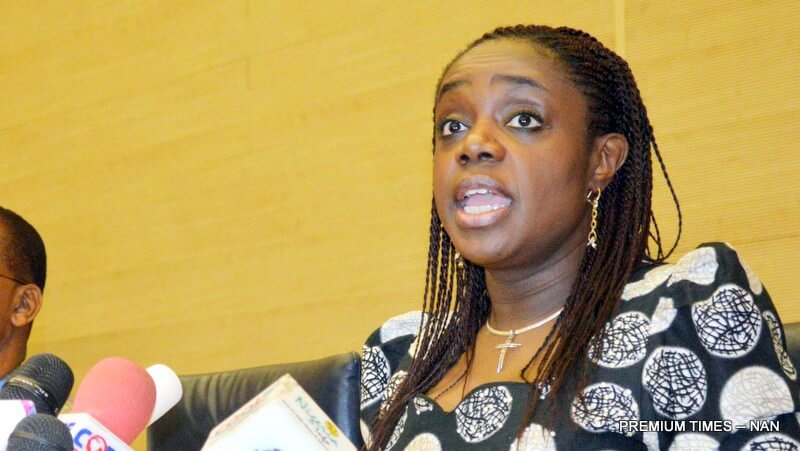Nigeria’s Finance Minister, Mrs. Kemi Adeosun, has confirmed the decline in the nation’s debt-service-to-revenue ratio from about 66% to 45%.
The extensive decline has been tied to improved revenue mobilisation from both domestic and foreign sources by the Debt Management Office (DMO).
Advertisement
This implies that more funds can now be channelled towards development projects while the DMO ensures that the high cost of short term domestic debts are controlled.
Meanwhile, Mrs. Adeosun has assured of continued efforts by government to further prune down the 45 per cent debt-service-to-revenue ratio.
The minister said infrastructure investment was at the core of the country’s new debt strategy even as government commits more effort into diversification of the economy to create enabling environment for businesses to thrive.
“Our tax amnesty (VAIDS) is delivering strong results and will establish the basis for a much more sustainable revenue base going forwards,” she said.She noted that Nigeria is already establishing a strong position in international capital market, with regular issuances that have been very well received by the international investor base.
Advertisement
“By successfully extending the tenure of our international debt portfolio to 30 years, we are establishing the long term financing that is essential for infrastructure development.“It takes time to make fundamental changes to our economic model. Achieving a full reset will take even longer, but we are seeing strong, green shoots of success. Establishing long term funding will enable us to build the infrastructure that we, and our children, will benefit from for the next 50 years,” she said.
Adeosun further explained that the country`s over dependence on short term domestic debt for the past five years had seen the nation paying too much.
“Having returned the economy to growth in 2017 and secured a stable and liquid exchange rate regime, we are focused on addressing this issue by diversifying our sources of debt to achieve an optimal balance.
“So far, we have moved our domestic/international debt ratio from 18:82 to 23:77 and we expect this to improve to 27:73 by year end, with an ultimate target of 40:60. This will deliver significant savings in our debt service costs, with provisional estimates demonstrating savings of up to N91 billion in 2018 alone.
“Our intention for this issuance was to meet our short term requirement to fund $2.5 billion for the 2017 budget. Following significant investor interest of over US$11 billion, we brought forward a further $500 million of funding towards the refinancing of existing domestic debt.
Advertisement
“We will assess options for concluding the refinancing process in the New Year. Restricting this issuance to $3 billion also enabled us to optimise the price of the notes, which at 6.5 per cent (10-year) and 7.625 per cent (30-year) are significant improvements to our existing portfolio,” said the minister.



